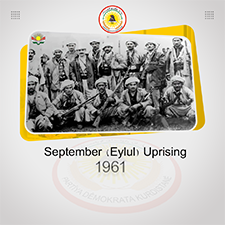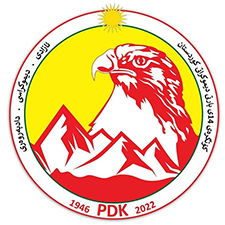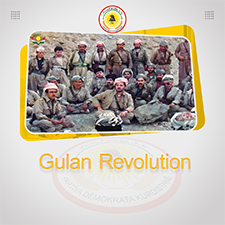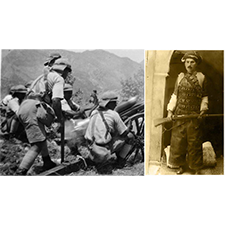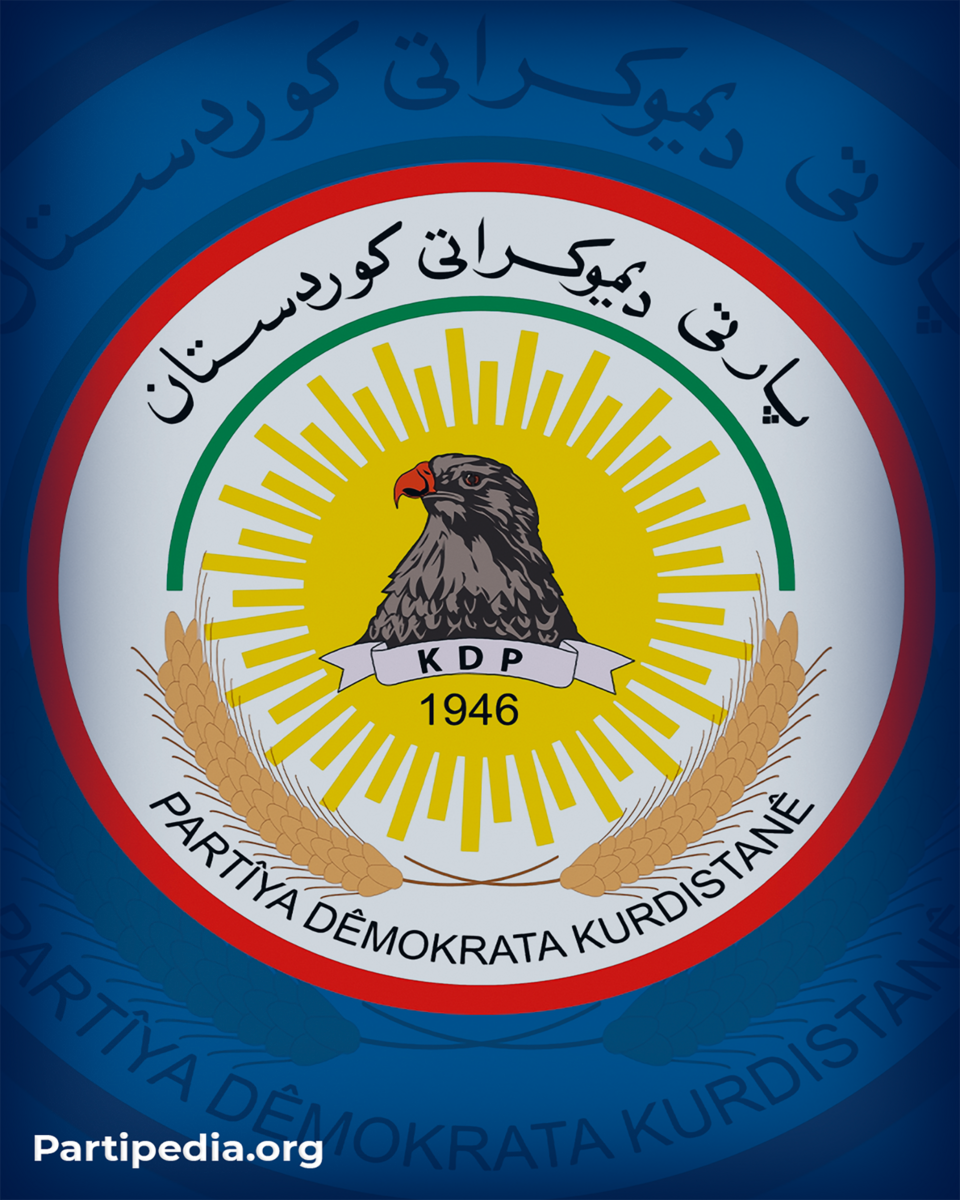Causes
After the uprising of July 14th 1958 great changes happened to the political and social condition in Iraq which was in favor of Iraq’s nations. The most important achievement of the uprising for Kurd was confirming article (3) of the constitution, which stated “Kurds and Arabs are equal in Iraq, their national rights acknowledged by the constitution in a united Iraq”. Regarding the freedom of political and organizational work, after the return of President Mustafa Barzani after 12 years of diaspora, the official licence to work as the only Kurdish party in Iraq was given to Kurdistan Democratic Party.
The equality of Kurds and Arabs was short lived and thethird article of the constitution was never fulfilled. The political condition was getting more complicated. The government was going back on the promises made to Kurds. The expulsion of Kurdish officers and civil servants in the army and Kurdish employees from their offices especially in Kurdish governorates has commenced. Kurdish education was halted in the Kurdish areas, publishing the political and literary books were banned, and the authority to please the feaudal lords has persecuted the farmers.
Kurdistan Democratic Party has stood against this policy of the government, especially after the announcement of the temporary constitution of Iraq and istalling article (2) which stated “Iraq is a constituent of the Arabic Nation”. On this subject and the situation in general Khabat newpaper published an article on November 19th 1961. In the article alongside stating the article (2) and (3) of the constition, the newpaper demanded the martial law and transition period to end, a free and demopcratic election to be held, release of the political prisoners, and quitting to hunt political party members, syndicate and farmers organizations.
In return, the government closed Khabat newpaper and tried the head editor. Especially after releasing volume (462) on March 28th 1961, in which an article regarding Nawroz was published which explained in general the favorability of the president Mustafa Barzani and launched a heavy attack on the government officials. Later, a number of the central committee’s cadres and members were arrested. Thus, the party’s condition became the same as the prior to the uprising of 14th of July, and started its secretive endeavor and activity.
The president Mustafa Barzani on the Soviet government’s call for the purpose of participating in the October’s celebrations visited Moscow on November 5th 1960. While meeting the Soviet higher-ups he asked them to help in normalizing the relations of the Kurdistan Democratic Party with the Iraqi Government. In the same meetings a lot of problems between the party and the communist party of Iraq have been resolved.
On January 13th 1961 President Mustafa Barzani returned to Baghdad after a period of waiting in February he met Abd al-Kareem Qasim. In the meeting president barzani tried to clear out the doubts and presented all the proofs of the Kurd’s good intentions for the government for Abd al-Kareem Qasim. But it was fruitless, so President Barzani in the beginning of March 1961 left Baghdad completely and returned to Barzan. Consequently the situation between Kurdistan Democratic Party and the Iraqi government was going south gradually. The government started weaponizing the tribes who made collaboration (Jash) their job; in return President Barzani tried to get weapons in order to be prepared for any sudden attack by the government.
At the end of June 1961 the Party’s central committee holds a meeting with purpose for investigating the situation. In the meeting it was decided to give Abd al-Kareem Qasim a petition. The petition was sent on July 30th 1961. In the petition it was demanded the dispute and complication between the Party and Abd al-Kareem Qasim to end, to return peace to the Kurdistan areas, and to prevent the situation from deteriorating further. But Abd al-Kareem Qasim did not listen to the petition of the Party’s central committee and the situation got further deteriorated. Prior to send the petition on July 12th 1961 Jalal Talabani was sent to Barzan by the Party’s central committee and presented the latest decissions of the central committee to President Barzani. Talabani confirmed the preparedness of the political bureau for any sudden incident. President Barzani’s opinion was that to stay still and to continue the preparations and later Jalal Talabani has returned with some advices of President Barzani to Suleymaniya.
The chaufanist politics of Abd al-Kareem Qasim has follow-ups against the Kurd. The situation was getting worse and worse to bursting. In order to avoid conflict as a form of disagreement against the government’s policy a strike was organized by Kurdistan Democratic Party all over the Kurdistan on September 6th 1961. The strike covered all the areas of Kurdistan and this was an indicator of the Party’s power and credibility. The purpose of the strike was to prevent the government from sending forces to the Kurdistan areas.
The Uprising
Despite the Party’s attempts to connect with the government and to prevent war, all of the attempts were beglected by Abd al-Kareem Qasim on September 11th 1961 the army forces started to aerially bombarding the vicinity of Baziyan, the Khalakan valley, and Duhok’s surrounding. In return on September 19th 1961 the Party’s political bureau decided to confront the government. Thus, the Kurd nation once again forced to defend themselves by armed struggle.
After many fights and confrontations, until September 23rd 1961 the government beside some areas of Barzan was able to take control of all the Kurdistan areas forcefully. On Nonember 6th 1961 each of Omar Dababa and Ali Abdullah members of the Party’s political bureau has reached Barzan and had a meeting with the President Mustafa Barzani. In the meeting the decession to reorganization has been made and it was decided to make a coordination among Barzan forces and the Party’s armed forces and the armed forces of those tribe who hadn’t left the battle.
After reorganization and many triumphs over the Iraqi army, in February 1962, a large scale meeting by the members of the Party’s central committee has been held in Awdalan village, Suleymaniyah. In this meeting the members of the central committee have sent a petition to Abd al-Kareem Qasim and announced that they are fighting for defence and their beliefs and not fighting for assault.
In their petition they have used the name “Peshmarga” for their armed forces and have raised the slogan: “Democracy for Iraq and autonomy for Kurdistan.” Some of the attendees of the meeting were: Ibrahim Ahmad, Ali Askari, Ahmad Abdullah, Omer Dababa, Ali Abdullah, Mala Abdullah Ismail, Shams al-deen Mufti, Abdulrahman Zabihi, and Nuri Ahmad Taha, and the guard board of this meeting were 15 police of Erbil who just became Peshmarga. The meeting’s majority voice decided to keep defending9.
The success of the Iraqi army was temporary and in a short time the Peshmerga forces were able to reorganize themselves and establish "Kurdistan Liberation Army" which was about 20,000 Peshmargas. Until themed of 1962 this force was able to liberate most of Kurdistan territories, except the centers of the major cities. At the beginning of 1963 the government was forced to cease fire and extended the cease fire for several times until the fall of Abd al-Karim Qasim's government on February 8, 1963, during which time the Kurdistan Democratic Party tried to find a peaceful solution to the dispute with the government and this attempt was welcomed by the Iraqi public opinion.
Baathist’s Coup
The September uprising paved the way for the February 8, 1963 coup against the government of Abd al-Karim Qasim. This coup was the product of an agreement between the Ba'athist party and the national officers, as part of their preparations for the coup d'état they have contacted the Kurdistan Democratic Party. They promised to carry out all the political and national demands of the Kurdish uprising and through Salih Yousef they promised to President Mustafa Barzani after the success of the coup autonomy autonomy will be given for the Kurdish people, and in return the revolutionary leadership promised to stop the war against the government.
After the success of the February 8 coup, a letter was sent to Ibrahim Ahmad the secretary of the Party by the Ba'athist party asking him to appoint some Kurdish people to be included in the new government. The political bureau, after the approval of President Mustafa Barzani, responded to the Ba'athist party as follows: "Democracy for Iraq and autonomy for Kurdistan, is our party's policy, our suggested names are the following: Baba Ali Sheikh Mahmoud, Fuad Arif, Bakir Abdulkarim, Omer Mustafa, Jalal Talabani and Ali Askari."12
On February 18, 1963, a delegation of the Kurdistan Democratic Party, led by Jalal Talabani and Salih Yousef was sent to Baghdad to discuss with the new government. For the next day the delegation met with the government officials. The Ba'athists tried to go back on the promises they had made to the Kurds before the coup. At the same meetings, it was decided that Jalal Talabani, without returning to the head of the Party and political bureau, to visit both Egypt and Algeria with a government delegation to discuss and present the Kurd’s issue. In this trip Jalal Talabani met with Jamal Abdulnasir, the president of Egypt, and Ahmad bin Billa, the president of Algeria. Both countries in their discussion supported a peaceful solution to the Kurd’s issue.
The leadership council of the revolution
On September 28 to 29, 1964, in the town of Qaladze, with the presence of President Mustafa Barzani and a group of advanced cadres of the Kurdistan Democratic Party, military commanders, social figures of the tribes and families a meeting was held to organize the affairs of the revolution and to set up a constitution and how to negotiate with Baghdad. President Mustafa Barzani, in a statement opened the congress, and talked about the negotiations and organizing the revolutionary ranks and called for a free election of the "Revolutionary Leadership Council in Iraqi Kurdistan" for prcessing the tasks to be elected.
At the end of September 1964, President Mustafa Barzani and the political bureau, based on the decision of the Sixth Congress and the Qaladze Meeting, on appointing October 7, 1964, to establish the Council of The Leadership of the Agreement, in order to manage the liberated areas. At first, the Boskin village was designated as the meeting place, but then the meeting was moved to Grdaspi village in Pshdar area and they were in discussion for ten days. 63 people were present at the meeting, including 17 members of the Kurdistan Democratic Party leadership, 17 commanders of the forces, 29 Islamic figures, Christian and Yezidi figurs, social figures, tribe leaders and family personalities.
The tribe leaders had previously agreed on their camdidate and were successful with their large number, as well as members of the Party leadership and the commander of the forces were added to the council. Later, on October 9, 1964, in boskin village, the constitution of the Revolutionary Leadership Council in Iraqi Kurdistan was signed on 11 articles. On October 10, 1964, the decisions and recommendations of the Kurdistan State’s Judiciary Committee were signed on 13 sections. Later, administrative laws and regulations were prepared in 12 articles, and financial laws and regulations were organized in three financial divisions of revolution, taxes and customs.
According to the council's decision, an eleven people executive office was formed, in which Mustafa Qaradaghi was the secretary, later changed to Mahmoud Osman. At the minority level, the Turkomans did not enter into the council because of their special situation, although President Mustafa Barzani has made many efforts regarding this matter. For the purpose, someone from Europe, to represent the council, Dr. Ismet Sharif Wanli, a member of the council was appointed, who participated in the second congress of the people and the meeting to establish the council. The council established five committees, including:
-
The constitution committee
-
Judiciary Committee
-
Military committee
-
Administrative Committee
-
Economic Committee.
As a result, at three levels with the leadership of President Mustafa Barzani, members were elected for these commitees who were membersof the central committee of the Kurdistan Democratic Party, commanders of the September revolution, tribe leaders, religious and national personalities.
Members of the Central Committee of the Kurdistan Democratic Party were: Mustafa Barzani, Habib Muhammad Karim, Dr. Mahmood Osman, Salih Yousefi, Aziz Akreyi, Dr. Fuad Jalal, Abdulkarim Murad, Ali Qasim Shangali, Naoman Issa, Ismail Arif, Hashim Hassan Akreyi, Ismail Mala Aziz, Sheikh Muhammad Harsin, Mustafa Qaradaghi, Muhammad Amin Muhammad Ali, Omar Sharif and Ramazan Akreyi.
The commanders of the September revolution were: Colonel Abdulrahman Qazi, Colonel Nuri Mala Maaruf, Colonel Major Abdulkafi Nabawi, Colonel Sheikh Salih Sheikh Muhammad, Liutenant-colonel Nafiz Jalal Hawezi, Liutenant-colonel Nuri Mala Hakim, Captain Bakr Abdulkarim Hawezi, Captain Yusuf Jamil Miran, Captain Sheikh Raza Gulani, Lieutenant Rashid Sindi, police lieutenant Abdulwahab Atrushi, Asaad Khoshawi, Issa Swar, Haso Mirkhan Dolamari, Ali Khalil, Abdullah Agha Pshdari and Haji Sheikh Qadir.
The tribe leaders, religious and national figures were: Dr. Ismet Sharif Wanli, Dr. Kamal Fuad, Sheikh Latif Hafid, KakaZiad Ghafuri, Muhsin Dzayi, Sheikh Hussein Boskin, Bapir Babakir Agha, Sheikh Muhammad Balisani, Wahab Agha Jundiani, Abbas Mamand Agha, Ismail Swara Agha, Salih Bag of Miran, Suleiman Haji Badari Sindi, Ahmad Muhammad Amin Dzayi, Mahmood Bag of Gulayi, Mustafa Bag of Jaff, Sheikh Kawkas Said Taha Nahri, Kwekha Ismaili Talan, Haji Agha Hero, Majid Hama Rashid Khan, Mahmood Abbas Agha, Abdulrahman Agha of Norak, Sheikh Rauf of Hanjira, Haji Ibrahim of Charmaga, Sheikh Muheddin of Sandulan, Matran Mario Wala, Priest Polis Bedari, Gorgis Malk ChaKo and Tahsin bag Saeed bag.
The establishment of the Revolutionary Leadership Council was an important step in organization and management. The council was appointing the officials of the district directorates and the mayor ... Etc., setting and distributing ranks and titles for various leaderships of the revolution army, recommending political bureau for party work and appointing a secretary for itself. The establishment of an excutive office that was responsible for managing and implementing decisions for local affairs and supervising the government departments in the liberated areas. This council was run directly by President Mustafa Barzani.
The revolution force was organized in the following way:
• General President: President Mustafa Barzani
• Chief of Staff: Nuri Mala Maruf
• First division in badinan: Assad Khoshwai, his forces were consisted of:
- Zakho Force: Issa Swar
- Dhok Force: Ali Khalil
- Shekhan and Akre forces: Haso Mirkhan Dolamari
• The second division of Erbil: Rashid Sindi, his forces consisted of:
- Safin Force: Tahir Ali Wali
- Kawa force in Pshdar: Haso Mirkhan Zhazhuki
- Betwata force: Ali Shaban
• The third division in Sulaimaniyah and Kirkuk: lieutenant-colonel Aziz Akreyi, his forces were consisted of:
-Khabat force: Abdulwahab Atrushi
- Qaradagh Force: Fazil Talabani
- Liberation Force: Tariq Ahmad.
The Agreement of March 11, 1970
The Algerian agreement 1975 and the failiure of revolution
The March 11, 1970 agreement, as agreed upon by the Iraqi government, was never implemented by the Iraqi government, so the situation between the revolutionary leadership and the Iraqi government was deteriorating. On March 26, 1974, the Ba'athist regime announced the cessation of talks with the revolutionary leadership. Then all the regiment guards of the border were overthrown and the war started again between the two sides. During that month, the regime's artillery began shelling the areas under the control of the revolution and until the end of September 1974, it seized control of most of the areas under the control of the revolution. The army's successes were not long-lived, and they were forced to withdraw from the areas occupied by the revolutionary army, and the revolution has been widely supported by the Iranian Shahenshah’s government.
At the end of the autumn of 1974, Baghdad announced the continuation of the war and announced that the war would continue in the winter season4. These defeats were not tolerable for the Ba'athist regime and Saddam Hussein. The government was completely weakened against the revolution, so it was forced to evwn take advantage from the standby members. The government's reserve finances were also coming to an end. The King of Iran wanted to put pressure on Iraq by helping the revolution to review the 1937 Gulan treaty special to "Shatt al-Arab", for this reason he persuaded the United States to help the revolution under its own supervision secretly.
Muhammad Raza Shah of Iran, he was gradually getting closer to his goal. On March 6, 1975, the OPEC summit was held in Algeria with the presence of representatives of 13 member countries. In this summit with the help of the president of the hosting country Hawar Boumediyan, a military political agreement between Saddam Hussein, the deputy prime minister of Iraq at that time and Muhammad Raza Shah Pahlavi of Iran was signed. The outcome of the agreement was Iran would help Iraq in blockading the Kurdish revolution, protect its borders with Iraq, and to no longer intrude in Iraq’s interior issues. In return Iraq has given away several "Shat al-Arab" territories to Iran and to return of the two countries' water borders to the 1913 Constantinopole Agreement between Iran and the Ottoman State.
When the Algerian agreement was announced, President Mustafa Barzani visited Tehran on a delegation at the request of the Shah of Iran, Muhsin Dizayi was sent from Tehran to Haji Omaran by President Barzani, to hold a joint meeting with members of the political bureau, political leaders, and revolutionary force leaders to tell them the latest updates. In the afternoon of March 8, 1975, Muhsin Dzayi arrived at Haji Omaran and held a meeting. Barzani's envoy told the attendees that the Iranian monarchy had decided on closing its borders on April 1st and is not ready to help the revolution any longer. President Barzani has demanded that members of the leadership to decide whether to be refugees of Iran or to continue the revolution.
Most of the members of the political bureau were with the opinion to continue the revolution through partisan war and not to surrender to any party. Muhsin Dzayi returned to Tehran on March 9, announcing the decision and suggestions of the meeting to President Barzani. On the same day, through the Party's office in Tehran, President Mustafa Barzani's response was sent to Haji Omaran by telegraph and supported the party's leadership proposal to continue the partisan war.
After the return of Muhammad Raza Shah from Algeria, on March 11, 1975, he met with the revolutionary leadership delegation in Tehran, and shah’s justification for the agreement was "I was obliged to put my country's interests ahead of other interests, just as you signed the March 11, 1970 agreement with them."
On March 12, President Mustafa Barzani and his accompanying delegation returned to Haji Omaran, held a meeting with members of the party's leadership on the same day, and in the meeting the decision was made to continue the war. On March 13, after the announcement of the ceasefire, a wider meeting was held by President Mustafa Barzani, the military leaders of the area, the political figures and the leading cadre of the Party participated in it, it was decided that the area of shorish to be divided over some sections and each section was assigned a special field leader. Also to ease the burden of the revolution and to decrease the number of Peshmerga forces and declared anyone is free to return to Iraq and receive a general pardon, or to head to Iran as a refugee, or to remain in the areas under the control of the revolution and to continue fighting. Most of those who participated in the meeting decided to stay.
After the decision to continue the revolution, on March 18, General Mansur Pur, the representative of Muhammad Raza Shah, came to the area under the authority of the revolution and met with President Mustafa Barzani and some of the members of the political bureau. Mansur Pur has brought the Shah’s final decision about the revolution. He told the revolutionary leadership, "If the fighting continues, the Iraqi military forces will be allowed to enter Iranian territory to annihilate the revolution, and the Iranian forces will help them if necessary." On March 18, an urgent meeting was decided by the revolutionary leadership. At the meeting, which was attended by members of the political bureau and the central committee, President Mustafa Barzani expressed his opinion to the meeting's attendees, which was suspending the war for a while and to begin at a suitable time, after discussing about the whole situations with the military leaders, the Party and political figures. all of them accepted President Barzani's proposal. Until the March 25, 1975, most of the revolutionary leadership, Peshmerga and civil people were refugees in Iran, and a large number of them remained in Kurdistan benefitting from the general pardon, and then transferred to southern and central Iraq.
The important Battles:
• Pers Mountain 1961
• Gali Zaweta 1961
• Kani Mase 1961
• Gali Chama 1961
• Sarzeri 1961
• Sari akre
Sources:
• مسعود بارزانی، بارزانی و بزووتنهوهی رزگاریخوازی كورد، ١٩٥٨-١٩٦١، بهرگی دووهم، (٢٠١٢).
• مسعود بارزانی، بارزانی و بزووتنهوهی ڕزگاریخوازی كورد ١٩٦١ـ ١٩٧٥، بهرگی سێیهم، بهشی یهكهم، (ههولێر ـ چاپخانهی وهزارهتی پهروهرده ـ ٢٠٠٤ز).
• مسعود بارزانی، بارزانی و بزووتنهوهی ڕزگاریخوازی كورد ١٩٦١ـ ١٩٧٥، بهرگی سێیهم، بهشی دووهم، (ههولێر ـ چاپخانهی وهزارهتی پهروهرده ـ ٢٠٠٤ز).
• مێژووی پارتی دیموكراتی كوردستان، كۆنگره و كۆنفرانس (پرۆگرام و پهیڕەوی ناوخۆ). دهستهی ئینسكلۆپیدیای پارتی دیموكراتی كوردستان، بهرگی یهكهم، (ههولێر- چاپخانهی ڕۆژەهڵات- ٢٠٢١).
• صلاح الخرسان، التیارات السیاسیة في كردستان العراق، قراءة في ملفات الحركات و الأحزاب الكردیة في العراق ١٩٤٦-٢٠٠١، (بیروت – مطبعة البلاغ – ٢٠٠١م).
• حبیب محمد كریم، تأریخ الحزب الدیمقراطي الكوردستاني ـ العراق (في محطات رئیسیة) ١٩٤٦ ـ ١٩٩٣، (دهوك ـ مطبعة خهبات ـ ١٩٩٨م).
• دكتۆر شێركۆ فهتحوڵا عومهر، پارتی دیموكراتی كوردستان و بزووتنهوهی رزگاریخوازی نهتهوهی كورد ١٩٤٦ – ١٩٥٧، و. سواره قهڵادزهێی، (چاپخانهی شههید ئازاد ههورامی - ٢٠١٣).
• شهوكهت مهلا اسماعیل حسن، رۆژانی له مێژووی شۆڕشی ئهیلول ١٩٦١ ـ ١٩٧٥، (ههولێر ـ نووسینگهی تهفسیر بۆ بڵاوكردنهوه و ڕاگهیاندن ـ چاپخانهی وهزارهتی پهروهرده ـ ٢٠٠٧ز).
• عصمت شریف وانلي، كردستان العراقیة هویة وطنیة (دراسة في ثورة ١٩٦١)، ترجمة سعاد محمد خضر، (السلیمانیة ـ مؤسسة ژین ـ مطبعة شڤان ـ ٢٠١٢م).
• شیرزاد زكریا محمد، مجلس قیادة الثورة في كوردستان ـ العراق ١٩٦٤ ـ ١٩٧٠ دراسة تاریخیة سیاسیة عامة، (دهوك ـ مركز الدراسات الكوردیة و حفظ الوثائق ـ جامعة دهوك ـ مطبعة جامعة دهوك ـ ٢٠١٠م).
• شورای فرماندهی انقلاب عشایر تشكیل شد كمیته دفاع از حقوق عشایر، روزنامه اطلاعات، شماره ١١٥٣٣، تهران، شنبه، ١٦ آبان ١٣٤٣ھ . ش.
• به دنبال صدور اعلامیه عشایر عراق درباره خودمختاری، روزنامه اطلاعات، شماره ١١٥٣٤، تهران، یكشنبه، ١٧ آبان ١٣٤٣ھ . ش.




